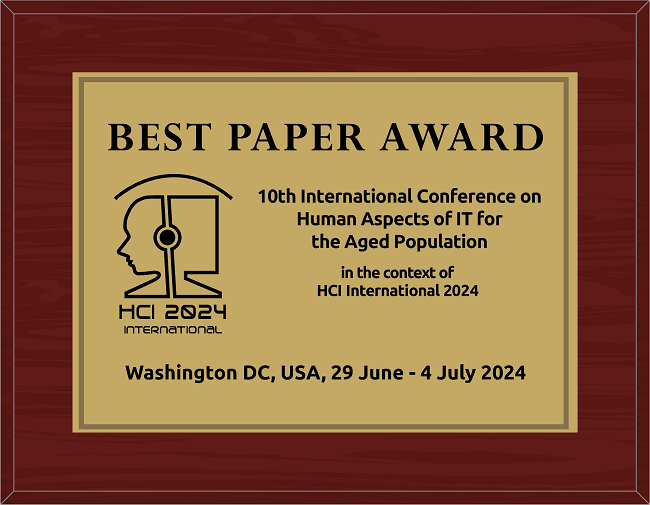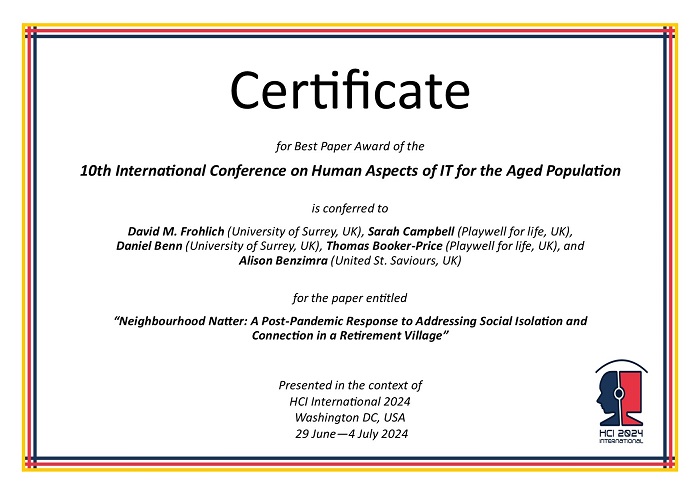
The Best Paper Award of the 10th International Conference on Human Aspects of IT for the Aged Population
has been conferred to
David M. Frohlich (University of Surrey, UK),
Sarah Campbell (Playwell for life, UK),
Daniel Benn (University of Surrey, UK), Thomas Booker-Price (Playwell for life, UK),
and Alison Benzimra (United St. Saviours, UK)
for the paper entitled
"Neighbourhood Natter: A Post-Pandemic Response to Addressing Social Isolation and Connection in a Retirement Village"

David M. Frohlich
(presenter)

Best Paper Award for the 10th International Conference on Human Aspects of IT for the Aged Population, in the context of HCI International 2024, Washington DC, USA, 29 June - 4 July 2024

Certificate for Best Paper Award of the 10th International Conference on Human Aspects of IT for the Aged Population presented in the context of HCI International 2024, Washington DC, USA, 29 June - 4 July 2024
Paper Abstract
Living in retirement communities is often promoted as a solution to problems of loneliness and social isolation which are risk factors for both mortality and poor physical and mental health. However, even there, friendships do not automatically form between neighbours, and it can be difficult for newcomers and those on the margins to engage with existing clubs and groups. In this context, from autumn 2021 to spring 2023, we carried out two studies in a retirement village in Surrey UK to co-design a novel social media system to help address issues of social connection for residents. In this paper we report the requirements, design and evaluation of the resulting system called Neighbourhood Natter. This was unusual in not supporting online communication, but rather the facilitation of face-to-face conversations between small groups of neighbours in a community social space. Residents embraced the system and fell into having meaningful conversations with acquaintances or strangers relatively quickly. These led to a significant reduction in reported loneliness levels, positive mood shifts and private plans to meet with conversational partners again.
The full paper is available through SpringerLink, provided that you have proper access rights.